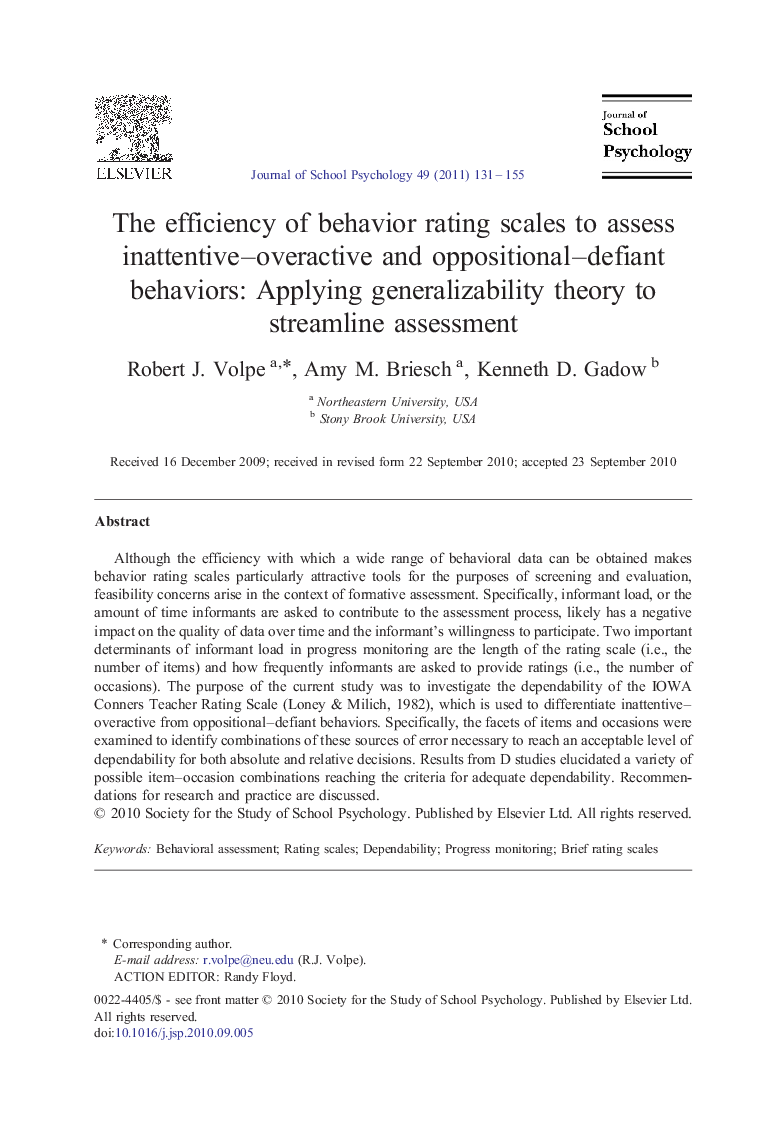| Article ID | Journal | Published Year | Pages | File Type |
|---|---|---|---|---|
| 363822 | Journal of School Psychology | 2011 | 25 Pages |
Although the efficiency with which a wide range of behavioral data can be obtained makes behavior rating scales particularly attractive tools for the purposes of screening and evaluation, feasibility concerns arise in the context of formative assessment. Specifically, informant load, or the amount of time informants are asked to contribute to the assessment process, likely has a negative impact on the quality of data over time and the informant's willingness to participate. Two important determinants of informant load in progress monitoring are the length of the rating scale (i.e., the number of items) and how frequently informants are asked to provide ratings (i.e., the number of occasions). The purpose of the current study was to investigate the dependability of the IOWA Conners Teacher Rating Scale (Loney & Milich, 1982), which is used to differentiate inattentive–overactive from oppositional–defiant behaviors. Specifically, the facets of items and occasions were examined to identify combinations of these sources of error necessary to reach an acceptable level of dependability for both absolute and relative decisions. Results from D studies elucidated a variety of possible item–occasion combinations reaching the criteria for adequate dependability. Recommendations for research and practice are discussed.
